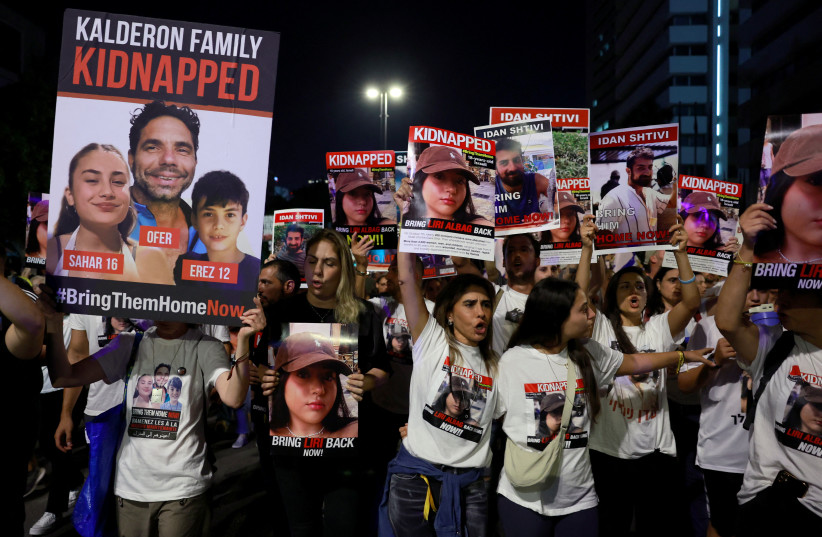It is a bizarre and paradoxical dichotomy, but it seems the IDF may be winning against Hamas on controlling Gaza territory, while the terrorist group is winning on the hostage issue.
All of this could change in an instant – if Israel’s spies and special forces pull off some kind of miraculous operation to assassinate Hamas’s top leaders and save the hostages in one fell swoop.
But absent that miracle, these two contrary trends seem to be coming to the fore.
The IDF’s winning territory has been somewhat obvious since mid-November. By then, it had routed Hamas in most of northern Gaza, taking control of Gaza City and multiple equivalents of Hamas’s capital sites of governing.
Anywhere Hamas terrorists tried to fight, the IDF defeated them, given enough time and the use of joint attacks from the IAF, tanks, and artillery.
Put simply, Hamas was too outgunned to win any head-to-head battles with the IDF.
A weeklong ceasefire left an open question about whether the IDF could achieve the same outcome in southern Gaza. But after two weeks of fighting in Khan Yunis, that question is slowly subsiding.
It may take the IDF longer to subdue Hamas in southern Gaza than in northern Gaza – first of all, because Hamas will need to stand and fight more often, with fewer places to flee to.
The IDF also may not rush to take control of all parts of southern Gaza – so far, leaving Rafah mostly untouched, with some limited exceptions.
But that would be a tactical choice by the IDF, not an inability to take the territory if it wanted to.
<br>IDF's failures to return hostages home

Only one of them was rescued alive in an IDF military operation. Eighty-one hostages were returned during the weeklong exchange of hostages for security prisoners and a temporary ceasefire.
But again, that required giving up security prisoners in a three-to-one ratio, delaying the war for a week when Hamas was on the run, and providing Hamas with much-needed fuel.
The IDF determined that about 20 hostages believed to have been kidnapped were either already dead, killed while in captivity, or sadly, as with three recent hostages, mistakenly killed by IDF fire.
It is not just that some have been killed in captivity; it is that the IDF did not know about at least three episodes in which hostages had escaped, and so it was not able to help them.
There was also at least one failed operation to rescue hostages by force when IDF forces were repelled and suffered casualties.
Further, IDF sources over time have sounded less and less certain about where the hostages have been moved around, and some of their predictions of being able to find them have been thwarted.
IDF sources no longer deny that their latest intelligence about the hostages – as opposed to intelligence during the first week of the war before the IDF invasion – may be incomplete or wrong.
Most importantly, it is now believed that many of the hostages are with Hamas’s Gaza chiefs, Yahya Sinwar and Muhammad Deif, and any attempt to rescue them or attack the Hamas leaders could very well lead to their execution or accidental shooting.
Pulling off a surprise Entebbe-style raid in a tunnel or underground floor, where the hostages are expected to be, is much harder than doing so in any aboveground structure, however well-guarded it might be.
This means that to the extent the IDF prioritizes the hostages, it has a difficult uphill battle – likely more difficult than it did even 10 weeks ago, when there might have been more of an element of surprise, and the hostages might have been more spread out – and this despite taking over more and more of Gaza’s aboveground territory.
An alternative is to prioritize killing Sinwar and Deif and dismantling Hamas, even at the terrible cost of risking hostages’ lives.
Absent that, more and more defense officials are admitting that to get more hostages back will require Israel to return to negotiating and potentially even agreeing to Hamas’s leaders and maybe others being able to leave Gaza freely.
